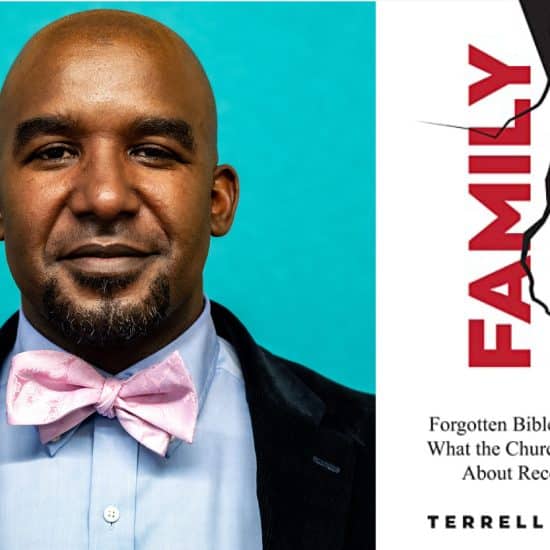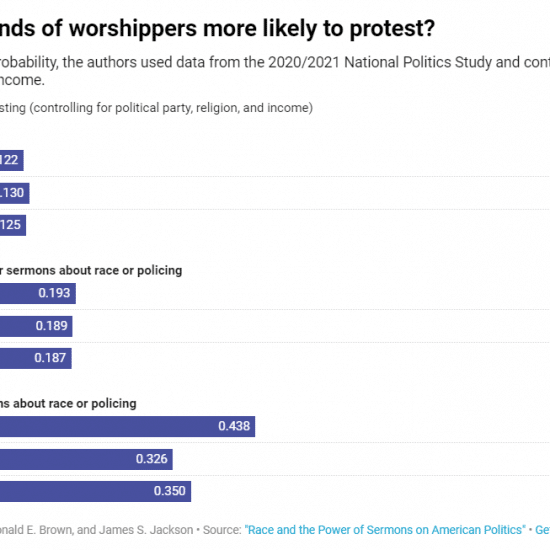By Jennifer Harris
Word&Way News Writer
The emerging church has been a source of controversy due to the perceived desire for the church to fit into a postmodern or — as Midwestern Baptist Theological Seminary associate professor of theology Mark Devine prefers to call it — post-Christian mindset.
Devine and Darrin Patrick, pastor of The Journey, a Southern Baptist emerging church plant in St Louis, told participants of the St. Louis Metro Baptist Association’s monthly leadership seminar that the emergent movement offers a unique way to witness in urban areas.
“I am absolutely not postmodern,” Patrick said. “They believe truth is relative — you don’t get that from the Bible.” Instead, Patrick and The Journey focus on a gospel-centered method of interpretation, using the good news of Scripture, rather than merely good advice, to teach the congregation.
Patrick said Christianity is unique in that the Bible teaches “we are accepted, therefore we obey.”
“The gospel teaches unconditional acceptance now,” he emphasized, contrasting to religion in which followers obey in order to be accepted.
When we realize that we are loved and accepted now, we are free to love others, Patrick said. He warns, like the apostle Paul did in the book of Romans, that this freedom does not mean Christians can do whatever they please because God loves them unconditionally, but rather that those in a relationship with Christ will want to obey because they are first loved.
Devine pointed out that the emerging church is an area where Baptists have been successful in urban settings.
“When I see strong biblical teaching in an urban area, I’m interested,” Devine said. “I want our numbers to grow. If anything is there that can help us plant visable, viable churches in urban areas, I don’t want us to miss out.”
Devine has studied the emerging movement, noticing two distinct groups — what he calls the “doctrine friendly” and the “doctrine wary/adverse.” He pointed out that the first group, which includes The Journey, often prefers the label “missional” instead of “emerging.”
These churches are willing to go where sinners are. “If we don’t go get them, they won’t be gotten,” Devine said.
Patrick didn’t speak about The Journey’s most publicized — and most controversial — outreach ministry, but offered a handout on “Theology at the Bottleworks,” a weekly meeting at Schlafly Bottleworks in St. Louis.
The ministry received a controversial label due to what its pastor says is a mistaken notion that the Bottleworks is a bar. In a written response to press about the ministry, Patrick points out that while beer is sold at the establishment, “it is first a restaurant, much like Applebee’s.”
The Journey uses the event to “build relationships with lost people over time, a process where the first steps involve respectfully listening to others’ viewpoints and seeking to understand and love those individuals,” the pastor wrote.
“Theology at the Bottleworks” is designed to reach people who are actively opposed to Christianity, according to the handout.
“We know this ministry is controversial, but we must take risks as we take the unchanging gospel into ever-changing culture and imitate our Lord who was called ‘a drunkard, a glutton and a friend of sinners’ by well meaning, but misinformed religious leaders,” Patrick wrote.
The handout also emphasized that The Journey constantly monitors all of its ministries.
“In short, if The Journey leadership did not consistently see lost people moving closer to God and to embracing biblical truth through TATB, it would be cancelled. We are not interested in any events, controversial or not, that do not move people toward Jesus and an understanding of the gospel,” Patrick wrote.
Ultimately, contextualization is key. “You can’t preach aculturally,” Patrick told leadership seminar participants. “You are in a culture. But that does not mean the message doesn’t transcend culture.”
Devine agreed, stating Christians are not just called to go to all nations, but also all subcultures. He pointed out that Christian churches are shrinking and will have to face these insights.
Both speakers told how Paul made himself all things to all people so he might reach some for Christ.
In the same way, Christians need to learn to relate to subcultures on their level. The gospel, they said, remains the same.
Patrick urged participants to find what they like to do — whether sports, music, crafts, etc. — and use that as a way to build relationships with people.
“What do you like to do?” he asked. “As long at it is something that isn’t against Scripture — do that!” (06-28-07)






